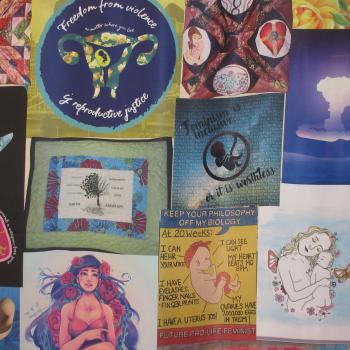Looking at the Casey abortion decision today, we see this quote: “At the heart of liberty is the right to define one’s own concept of existence, of meaning, of the universe, and of the mystery of human life.” And here it is: humans have the ability to think like a god. This state of mind (that individuals are responsible to themselves first, inherently possessing the constructive ability and the right to pursue freedom and its ensuring contracts) is, in practice, a politicized temptation to the exercise of a calculated, centralizing compulsion, often terrible, sometimes not. Personhood is reduced to subjectivity, ripe for manipulation by impersonal institutions and processes following their own cold logic. According to Rein Staal, “the aspirations that had inspired the founders of modern thought – the conquest of nature through science, indeed the conquest of human nature through science and the emancipation of power from moral restraint – had been achieved beyond anyone’s wildest dreams, and they had turned to ashes before that success could be enjoyed.” One enemy is the utilitarianism of many Enlightenment figures, Bentham, Mill, and Rousseau first among them. Their ideals were the underpinning of utopian, ideological visions “left” and “right,” including the libertarianism and socialism strongly present in the currents of Twentieth Century American political discourse. To escape the structures of liberalism and “reconnect” with an older, pre-Enlightenment Western tradition is to avoid the scheming trample of long-developing culture and tradition, the asymmetrically strange and odd, the nonconformist, and the mysteriously religious. But is this possible? Utilitarianism – lurking in the universalizing, rationalist, secular equality of the Enlightenment, in the ideological fever of the French Revolution, and in the elevation of unmoored “rights” – could perhaps be countered by such a search for meaning. The things true for all people at all times, transcending matter and time, come through interpretation mediated by historical experience. From the understanding that man was made in the image of a Person invisible to us now, ethical principles emerge that facilitate humans living in community so that we will not be as the beasts. This order of a society, whatever its modern pretenses, can shine through to grant ethical meaning to existence. Such permanent things are the measure of true societal progress. Upholding these produce higher social goods than utility: norms of courage, duty, justice, integrity, charity, and familial help – the standard for judging persons and institutions. The appreciation of norms are acquired in the outgrowth of organic community unorganized by the mechanisms of the state, beginning with family and extending to the small spheres of community such as church and school. Accumulated experience is the teacher of life. We must search for the good things, which is the end and the purpose of our life, and then pass them forward.












